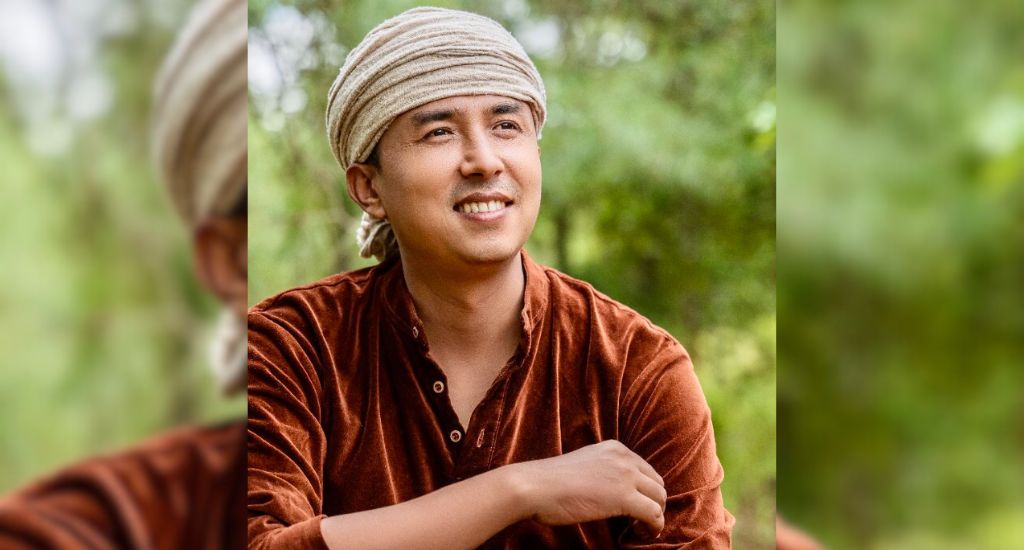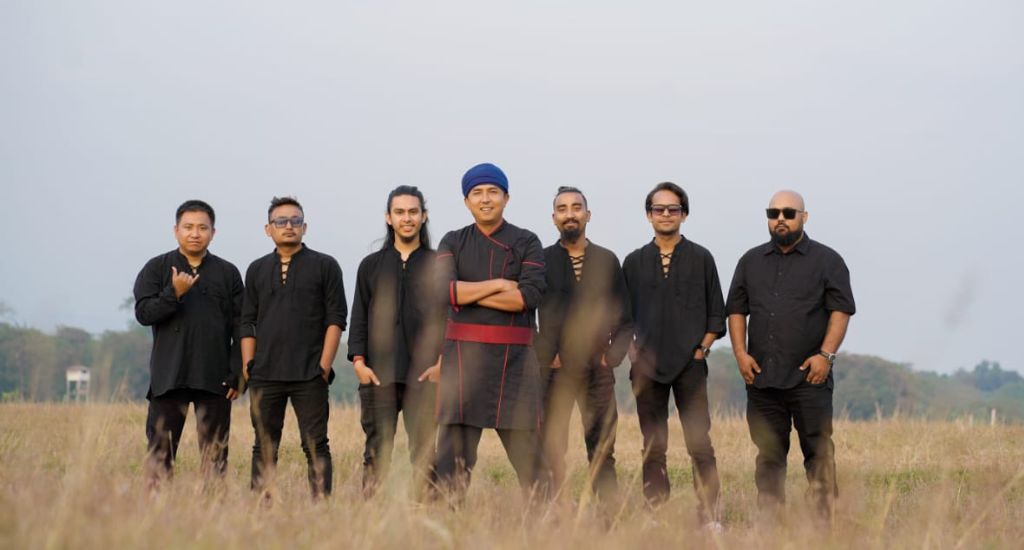‘My songs come from my heart’: Pushpan Pradhan
Pushpan Pradhan, who grew up seeing his parents toil in a tea plantation, makes music to bring attention to the working class. He talks about his journey in an exclusive interview with Village Square.
Pushpan Pradhan, who grew up seeing his parents toil in a tea plantation, makes music to bring attention to the working class. He talks about his journey in an exclusive interview with Village Square.
Pushpan Pradhan lives up to his name in more ways than one. Like the fragrance of a flower, his voice wafts softly through the air as he brings to the fore social issues through his melodies. And like the sweet-scented petals, the singer has blossomed through thorns and rough winds.
Pradhan is a people’s performer, and his unassuming demeanour stands out as he steps down from the stage to sing amid the audience, prompting them to complete the lines. The crowd croons along loudly, making him one of the star performers at the recently-held Kholey Dai festival at Parengtar village in Kalimpong district of West Bengal.
“I want to make a difference with my songs,” the 41-year-old singer said in an exclusive interview with Village Square. “I wish to jolt people out of their indifferent attitude towards the social inequalities currently present in the society. My heart doesn’t lie in playing in concerts only for the sake of earning money or providing entertainment. That’s why I have quit performing in clubs and pubs,” added Pradhan, who leads the 8-member band called Pushpan Ani Sarathi.
It’s easy to see where the thoughts take root from. Born to parents who toiled every day as workers in Chalouni Tea Garden, earning a combined monthly income of Rs 4,600, Pradhan has seen challenges aplenty. A school topper until class 10, he struggled in studies after moving to the city for higher classes.
Also Read: Kholey Dai: It takes a village to host this festival

“I had studied in Nepali medium in a government school until then and didn’t know much English. I struggled to study every subject in the new school,” said Pradhan, talking about how his parents couldn’t afford to pay for English tuition. “I began questioning the education system that doesn’t give due importance to my native language.”
Pradhan couldn’t attend college due to his father’s failing health and opted to get trained as a primary school teacher. He continues to work as a teacher in Zurrantee Primary School in Jalpaiguri.
“I am not very qualified in music,” Pradhan said, recalling how he was always inclined towards music but didn’t have resources like access to quality instruments or classes.
He could only pick up basic training in music due to financial difficulties. “My songs come from the voices in my heart. It’s lyrics-oriented music that talks about the life of villagers and labourers, and rural culture and traditions.”
Having seen and experienced the disparities between the privileged and the economically and socially deprived segments of the society, Pradhan often weaves his lyrics around these issues. The words instantly touch a chord with his fandom, which comprises the Nepali-speaking population of India as well as the neighbouring country, where he has also judged singing reality shows.
Watch: Melodies from Meghalaya

The themes vary, but the verses lie close to people’s emotions across the border. For instance, Panchi, one of his most popular songs, delves into the issue of migration.
“It’s about leaving one’s roots in search of better opportunities, and urges people to instead contribute in building a better society at their native place itself,” said Pradhan. “The song reached the core of the people, especially in Nepal where almost one person from every family has moved outside for work.”
Also Read: Nepal’s organic manure could work wonders for Indian farmers
Another one of his favourite songs is Babu ko jungo, which appeals to people to cherish their parents as they grow old. And then there is Thuldaju, his personal favourite, which talks about the struggles of the working class and its contribution to nation-building, and Dumping ground, which is about the lack of a disposal corner in our hearts for negative feelings, due to which they linger within us and cause societal disharmony.
Despite the adulation he enjoys, Pradhan is careful about celebrating his popularity. He realises that the kind of musical journey he wants to pursue may not fetch him large commercial success. His mother and wife are proud of his accomplishments but often wonder whether there is a better way for his music to get a wider reach.
“It’s a struggle,” said Pradhan. “But getting so much love also makes one feel proud.”
Pradhan is sure that his 10-year-old son, Swavyam, will reach greater heights. The young one is already heavily into music, and dad wants to give him proper training in the field. Pradhan also wants to inculcate the right values in him, travelling with him and exposing him to heritage places like Vrindavan.
“If you want to showcase your true self it’s possible only through folk art,” Pradhan said. “Any education is incomplete without traditional values.”
Also Read: Rajasthan music school trains ustads of tomorrow
The lead image at the top shows Pushpan Pradhan who also works as a teacher in Zurrantee Primary School in Jalpaiguri, West Bengal.
Pallavi Srivastava is Associate Director, Content, at Village Square.